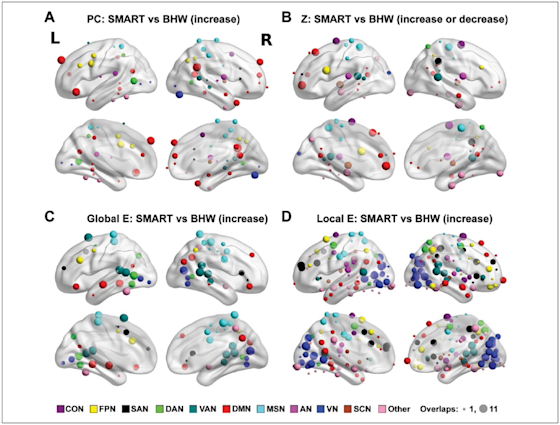Overview
A TBI can interrupt existing brain connections, which alters the communication from one brain region to the next. The brain however is plastic, meaning it can adapt and change over time due to experience and the environment. Given the flexible nature of the brain's internal connections, this study sought to determine if individuals with a TBI would demonstrate changes in their brain's connections following a strategy-based cognitive training program called SMART™, or Strategic Memory Advanced Reasoning Tactics. Participants completed 8 weeks of either SMART or a knowledge-based training program. Resting-state functional magnetic resonance imaging (fMRI) was completed before, immediately after and 3 months post-training. Results demonstrate participants who received SMART training evidenced induced neuroplasticity across the brain, including increased global and local efficiency as compared to an active control group. This study not only continues to demonstrate the benefit of strategy-based cognitive training for individuals with TBI, but also introduces resting-state brain networks as a potential marker for training efficacy in neurorehabilitation settings.
Figure 3 shows the specific brain areas in which the SMART training showed increases in network densities.



